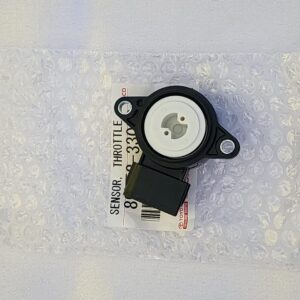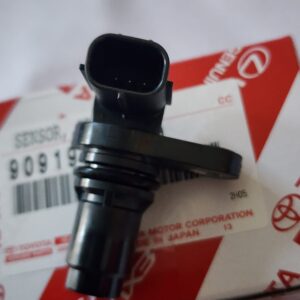**Unveiling the Brain of Your Vehicle: Exploring Engine Control Computers**
In the modern era of automotive engineering, where technology intertwines with mechanics, one component stands as the nerve center of vehicle operations—the engine control computer. Often hidden beneath the hood, this electronic marvel quietly orchestrates the symphony of engine performance, fuel efficiency, and emissions control. Join us as we delve into the depths of engine control computers and uncover their significance in the realm of automotive technology.
**Understanding the Essence: What is an Engine Control Computer?**
An engine control computer, also known as an engine control unit (ECU) or powertrain control module (PCM), is a sophisticated electronic device that manages and controls various aspects of engine operation. Situated within the vehicle’s onboard electronics, the ECU receives input from sensors throughout the engine and makes real-time adjustments to fuel injection, ignition timing, emissions control, and other critical functions.
**The Evolution of Engine Management**
In the early days of automotive engineering, engine control was primarily mechanical, with carburetors and distributor-based ignition systems governing fuel delivery and spark timing. However, as vehicles became more complex and emissions regulations tightened, the need for precise control over engine parameters became apparent. Engine control computers emerged as a transformative technology, enabling vehicles to meet stringent emissions standards while maximizing performance and efficiency.
**The Significance of Precision Control**
In the dynamic environment of modern driving, where every drop of fuel counts and emissions regulations loom large, precision control over engine operation is crucial. Engine control computers play a pivotal role in this regard, constantly monitoring engine sensors and making split-second adjustments to optimize performance, fuel efficiency, and emissions control under all driving conditions.
**The Silent Operator: How Does an Engine Control Computer Work?**
Despite its unassuming appearance, the engine control computer employs sophisticated algorithms and programming to fulfill its role effectively. Equipped with a network of sensors throughout the engine and vehicle, the ECU continuously gathers data on engine speed, throttle position, airflow, temperature, and other parameters.
Using this data, the ECU calculates the optimal fuel delivery and ignition timing for current operating conditions, adjusting fuel injection pulses, spark timing, and other engine parameters as needed. This dynamic control allows the engine to operate efficiently and reliably across a wide range of driving scenarios, from idling in traffic to accelerating on the highway.
**The Unseen Benefits: Advantages of Engine Control Computers**
While engine control computers may operate quietly behind the scenes, their impact on vehicle performance, efficiency, and emissions control is undeniable. Here are some key advantages of engine control computers:
1. **Optimized Performance:** Engine control computers enable precise control over fuel delivery, ignition timing, and other engine parameters, maximizing power output, drivability, and overall performance.
2. **Improved Fuel Efficiency:** By continuously adjusting fuel injection and other parameters to match driving conditions, engine control computers help optimize fuel consumption, reducing fuel costs and environmental impact.
3. **Emissions Compliance:** Engine control computers play a crucial role in ensuring that vehicles meet stringent emissions standards, minimizing harmful pollutants and greenhouse gas emissions.
4. **Enhanced Diagnostics:** Engine control computers facilitate onboard diagnostics, allowing technicians to quickly identify and address engine faults and performance issues, reducing repair times and costs.
**Looking Ahead: The Future of Engine Management Technology**
As automotive technology continues to advance, so too will the field of engine management technology. Innovations in sensor technology, artificial intelligence, and connectivity may lead to even more responsive and intelligent engine control solutions in the future.
Furthermore, as vehicles transition towards electrification and autonomous driving, engine control computers will play a crucial role in optimizing power delivery, managing energy consumption, and integrating with advanced driver assistance systems (ADAS) and autonomous driving technology.
**In Conclusion: The Nerve Center of Vehicle Operations**
In the dynamic landscape of automotive engineering, where precision and efficiency are paramount, engine control computers emerge as silent but indispensable architects of vehicle performance. Their unassuming presence belies their critical importance in ensuring smooth operation, optimal performance, and maximum efficiency of modern vehicles. So, the next time you hit the road and feel the engine hum with vitality, remember to thank the unsung hero working diligently behind the scenes—the engine control computer.
Only 2 left in stock (can be backordered)
$131,313.34
**Unveiling the Brain of Your Vehicle: Exploring Engine Control Computers**
In the modern era of automotive engineering, where technology intertwines with mechanics, one component stands as the nerve center of vehicle operations—the engine control computer. Often hidden beneath the hood, this electronic marvel quietly orchestrates the symphony of engine performance, fuel efficiency, and emissions control. Join us as we delve into the depths of engine control computers and uncover their significance in the realm of automotive technology.
**Understanding the Essence: What is an Engine Control Computer?**
An engine control computer, also known as an engine control unit (ECU) or powertrain control module (PCM), is a sophisticated electronic device that manages and controls various aspects of engine operation. Situated within the vehicle’s onboard electronics, the ECU receives input from sensors throughout the engine and makes real-time adjustments to fuel injection, ignition timing, emissions control, and other critical functions.
**The Evolution of Engine Management**
In the early days of automotive engineering, engine control was primarily mechanical, with carburetors and distributor-based ignition systems governing fuel delivery and spark timing. However, as vehicles became more complex and emissions regulations tightened, the need for precise control over engine parameters became apparent. Engine control computers emerged as a transformative technology, enabling vehicles to meet stringent emissions standards while maximizing performance and efficiency.
**The Significance of Precision Control**
In the dynamic environment of modern driving, where every drop of fuel counts and emissions regulations loom large, precision control over engine operation is crucial. Engine control computers play a pivotal role in this regard, constantly monitoring engine sensors and making split-second adjustments to optimize performance, fuel efficiency, and emissions control under all driving conditions.
**The Silent Operator: How Does an Engine Control Computer Work?**
Despite its unassuming appearance, the engine control computer employs sophisticated algorithms and programming to fulfill its role effectively. Equipped with a network of sensors throughout the engine and vehicle, the ECU continuously gathers data on engine speed, throttle position, airflow, temperature, and other parameters.
Using this data, the ECU calculates the optimal fuel delivery and ignition timing for current operating conditions, adjusting fuel injection pulses, spark timing, and other engine parameters as needed. This dynamic control allows the engine to operate efficiently and reliably across a wide range of driving scenarios, from idling in traffic to accelerating on the highway.
**The Unseen Benefits: Advantages of Engine Control Computers**
While engine control computers may operate quietly behind the scenes, their impact on vehicle performance, efficiency, and emissions control is undeniable. Here are some key advantages of engine control computers:
1. **Optimized Performance:** Engine control computers enable precise control over fuel delivery, ignition timing, and other engine parameters, maximizing power output, drivability, and overall performance.
2. **Improved Fuel Efficiency:** By continuously adjusting fuel injection and other parameters to match driving conditions, engine control computers help optimize fuel consumption, reducing fuel costs and environmental impact.
3. **Emissions Compliance:** Engine control computers play a crucial role in ensuring that vehicles meet stringent emissions standards, minimizing harmful pollutants and greenhouse gas emissions.
4. **Enhanced Diagnostics:** Engine control computers facilitate onboard diagnostics, allowing technicians to quickly identify and address engine faults and performance issues, reducing repair times and costs.
**Looking Ahead: The Future of Engine Management Technology**
As automotive technology continues to advance, so too will the field of engine management technology. Innovations in sensor technology, artificial intelligence, and connectivity may lead to even more responsive and intelligent engine control solutions in the future.
Furthermore, as vehicles transition towards electrification and autonomous driving, engine control computers will play a crucial role in optimizing power delivery, managing energy consumption, and integrating with advanced driver assistance systems (ADAS) and autonomous driving technology.
**In Conclusion: The Nerve Center of Vehicle Operations**
In the dynamic landscape of automotive engineering, where precision and efficiency are paramount, engine control computers emerge as silent but indispensable architects of vehicle performance. Their unassuming presence belies their critical importance in ensuring smooth operation, optimal performance, and maximum efficiency of modern vehicles. So, the next time you hit the road and feel the engine hum with vitality, remember to thank the unsung hero working diligently behind the scenes—the engine control computer.
| Weight | 0.98 kg |
|---|---|
| Warehouse | Inventory at warehouse 2 |


Get E-mail updates about our latest products and special offers.
Sensors and More is Jamaica’s ultimate online auto parts store. Established in 2020, we specialize in genuine electrical parts for Japanese, Read more…
Reviews
There are no reviews yet.